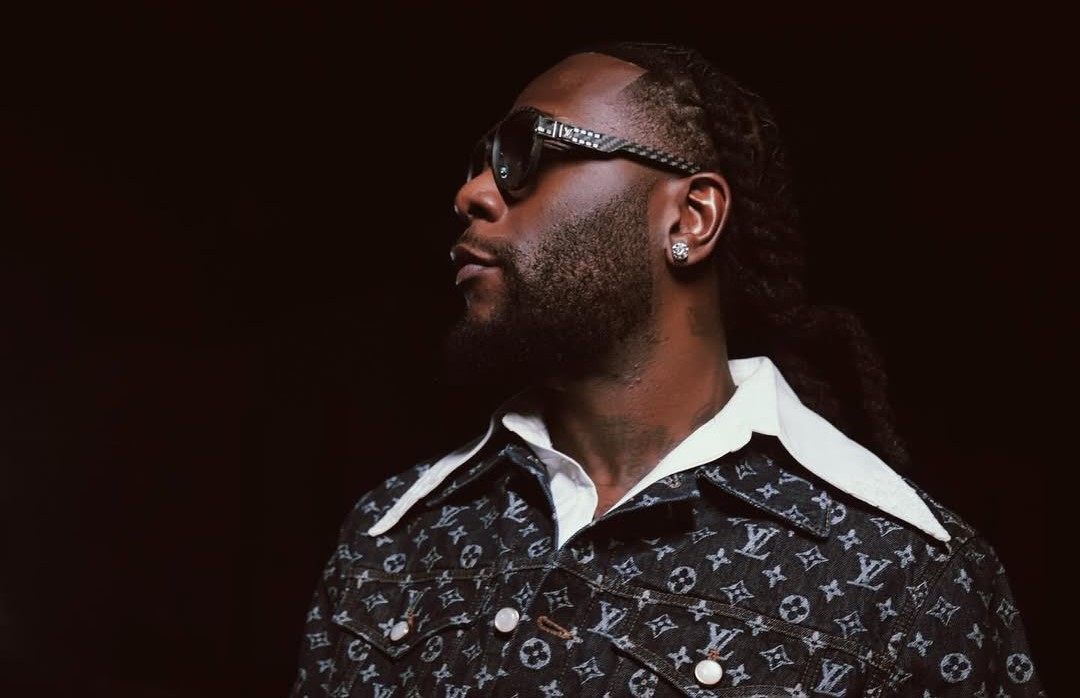
Afrobeats Singer Lojay Drops New Single 'Somebody Like You'
‘Somebody Like You’ is produced by Grammy-nominated Sarz.
The latest uproar emerged after a resurfaced clip from 2019 began circulating online.
In Summary

Audio By Vocalize
 Afrostar Burna Boy/X
Afrostar Burna Boy/XAfrofusion heavyweight Burna Boy is once again at the centre of controversy, sparking renewed debate over whether the Grammy winner is experiencing a decline in public favour or simply navigating a turbulent season under the intense scrutiny that comes with global superstardom.
While speculation swirls online, fueled by viral clips and social media chatter, the confirmed events paint a picture of an artist grappling with enormous expectations, a sometimes volatile fan relationship, and moments of public misjudgment that threaten to overshadow his remarkable musical achievements.
The latest uproar emerged after a resurfaced clip from 2019 began circulating online.
Recorded during his African Giant tour stop in Atlanta, US, the video shows Burna Boy pausing his performance and describing what he called “bad energy” by telling a fan, “Your face is not encouraging,” in reference to the perceived lack of engagement during the concert.
What followed was a wave of memes, comments, and social media posts, with opinions both supporting and condemning his remarks trending widely online.
At the time, entertainment outlets framed the incident as unusual but indicative of Burna Boy’s intense stage presence.
Today, critics highlight it as an early sign of his confrontational approach to fans, reigniting debates over his behaviour.
The conversation intensified following a more recent incident at Red Rocks Amphitheatre in Denver, Colorado, on November 12, 2025.
While performing at the iconic venue, Burna Boy paused mid-set after noticing a woman in the front row who appeared to be asleep.
Videos captured by fans show him addressing the woman’s companion directly: “I’m not doing no more songs until you take her home.”
The confrontation drew widespread online criticism, with some arguing that publicly calling out a paying attendee, who may have been dealing with personal exhaustion, was insensitive.
The woman later shared on social media that she had been emotionally drained due to personal circumstances, through her account.
Adding to the swirling commentary is another moment circulating online: clips from a livestream shared online in which Burna Boy appears to say, “Did I tell you all to be my fans? I am only looking for fans who have money this period.”
He was responding to criticism of his actions during performances, framing his remarks as a statement about the type of energy he seeks from his audience.
Amidst these controversies, an unverifiable video has appeared online, purporting to show an empty arena during one of Burna Boy’s recent U.S. shows in Houston.
The footage has fueled online speculation about low ticket sales, poor attendance and dwindling interest, though no verified data has been provided.
What is indisputable, however, is Burna Boy’s historic rise to global prominence.
Born Damini Ebunoluwa Ogulu, he has become one of Africa’s leading Afrofusion artists, blending Afrobeat, dancehall, reggae, and hip-hop into a unique sound that resonates worldwide.
He first gained major recognition in 2012 with the hit single “Like to Party,” which marked his breakthrough in Nigeria’s mainstream music scene.
Since then, he has released multiple critically acclaimed albums, including African Giant (2019) and Twice as Tall (2020), the latter earning him a Grammy Award for Best Global Music Album.
His music, often addressing African identity, social justice, and personal struggle, has earned him both commercial success and artistic respect.
Burna Boy’s achievements extend beyond Africa.
He is the first African artist to headline Houston’s Toyota Center twice, a milestone celebrated by the venue and U.S. entertainment media.
He has sold out major U.S. arenas, establishing himself as a global ambassador for African music and expanding Afrofusion’s reach internationally.
The ongoing tension between Burna Boy and portions of his audience highlights the delicate balance that global superstardom entails.
While social media amplifies controversies, sometimes distorting context, it also underscores the expectations fans place on artists.
For Burna Boy, navigating fame means confronting criticism, managing audience energy, and maintaining the high standards that his historic rise has set.
Whether the current scrutiny signals a “fall” or a temporary turbulent phase remains uncertain.
Yet, his enduring achievements suggest that despite public missteps, Burna Boy continues to wield influence as one of Africa’s most powerful cultural exports.

‘Somebody Like You’ is produced by Grammy-nominated Sarz.

According to Wilbroda, fame means “there’s always someone watching.”